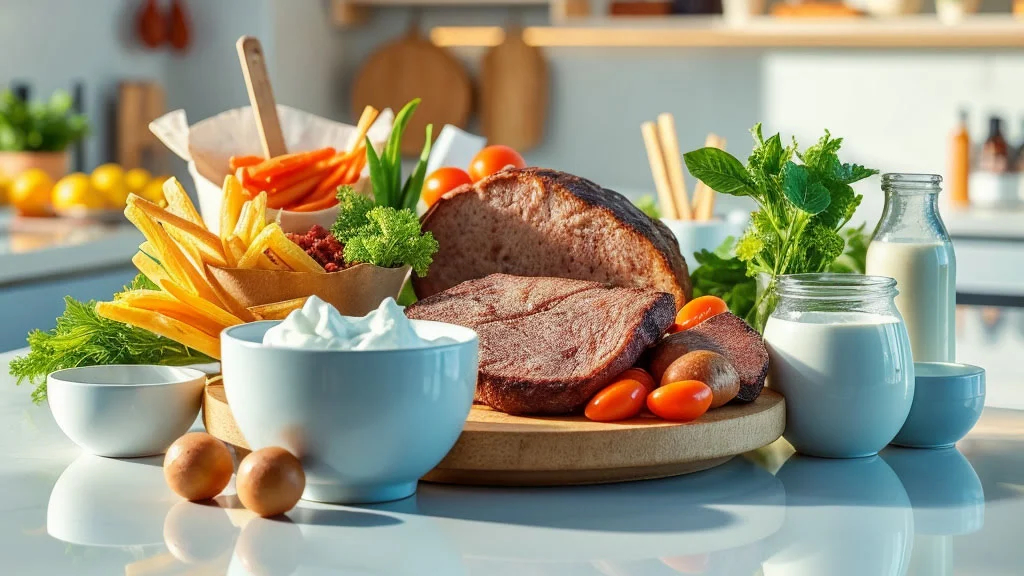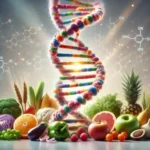In the modern world, issues of healthy eating and lifestyle are becoming increasingly relevant. As we approach 2025, we can observe new trends shaping the future of dietetics and nutrition. Below are ten key trends that will define the field of nutrition in 2025.
Personalized Nutrition Based on Genetics and Microbiome
Modern technologies continue to evolve, and in 2025, personalized nutrition will become even more accessible and precise. By using DNA and gut microbiome analyses, specialists can create individualized dietary plans that consider genetic predispositions and each person’s unique microflora. This approach will not only optimize nutrition to achieve specific goals, such as weight loss or increased energy, but also reduce the risk of developing various diseases. For example, people with a genetic tendency toward cardiovascular diseases can receive dietary recommendations that help strengthen heart health.
Sustainable and Eco-friendly Nutrition
Concern for ecology and sustainable development continues to gain momentum. In 2025, more consumers will choose products produced with minimal environmental impact. This includes supporting local farmers, reducing food waste, and using eco-friendly packaging. The popularity of “farm-to-table” practices, where products go directly from producer to consumer, reduces the carbon footprint and supports the local economy. Additionally, there is growing interest in regenerative agriculture, which restores soils and ecosystems.
Growing Popularity of Plant-based Products

In 2025, plant-based products will continue to lead in the nutrition market. New sources of plant protein, such as proteins from algae, mushrooms, and even insects, will be used as alternatives to animal proteins. Innovations in the food industry will allow the creation of plant-based analogs of meat and dairy products that are not inferior in taste and texture to traditional ones. This will satisfy the demand among vegetarians, vegans, and flexitarians—people aiming to reduce meat consumption without completely giving it up.
Innovations in Food Technologies
Technological progress will lead to new methods of processing and producing food products. In 2025, cultured meat grown in laboratory conditions from animal cells will become more accessible and widespread, reducing the burden on agriculture and lessening environmental impact. Additionally, the development of fermentation technologies and the use of probiotics and prebiotics in food products will promote gut health. Smart kitchen devices equipped with artificial intelligence will help prepare food more efficiently while preserving the maximum amount of nutrients.
Functional Food Products
Consumers are increasingly paying attention to products that not only satisfy hunger but also provide additional health benefits. In 2025, the market will see many functional products enriched with vitamins, minerals, antioxidants, and other beneficial substances. For example, drinks with added collagen to support skin health or bars high in protein and probiotics to improve digestion. Such products will be in demand among people leading an active lifestyle and striving to maintain a high level of health.
Nutrition to Support Cognitive Functions
With growing awareness of the impact of nutrition on brain function, interest in diets aimed at supporting cognitive functions will increase in 2025. Products rich in omega-3 fatty acids, antioxidants, B vitamins, and other nutrients will be actively included in diets to improve memory, concentration, and prevent neurodegenerative diseases. Special dietary programs and supplements aimed at maintaining brain and nervous system health will emerge.
Reducing Sugar Consumption

The fight against excessive sugar consumption will become even more relevant in 2025. Food manufacturers will actively work on reducing sugar content in their products, offering alternatives using natural sweeteners like stevia, monk fruit, and others. Technological advancements will allow the creation of sweet-tasting products with a low glycemic index, helping combat obesity, diabetes, and cardiovascular diseases.
Digital Health Solutions
Technology will continue to integrate into the health and nutrition sphere. In 2025, more advanced applications and devices for health monitoring will appear, helping people track their nutrition, physical activity, and sleep quality. Artificial intelligence and machine learning will be used to analyze collected data and provide personalized recommendations on nutrition and lifestyle. Online consultations with dietitians and nutritionists will become more accessible, allowing professional support anytime and anywhere.
Intermittent Fasting and Circadian Rhythms
Intermittent fasting and eating in accordance with the body’s circadian rhythms will gain popularity in 2025. Research shows that aligning meal times with the body’s biological clock can positively affect metabolism, contribute to weight loss, and improve overall well-being. Various intermittent fasting schemes, such as the 16/8 regimen (16 hours of fasting and 8 hours of eating), will be widely used to achieve health goals. This approach will help not only control weight but also improve blood sugar levels and reduce inflammatory processes.
Mindful Eating and Mental Health

Understanding the connection between nutrition and mental health will become a key trend in 2025. Mindful eating—a practice where a person pays attention to the eating process, their sensations, and the body’s needs—will help improve relationships with food, reduce stress levels, and prevent emotional overeating. Attention will be given to products that promote the production of serotonin and dopamine, the hormones of happiness and pleasure, such as dark chocolate, bananas, nuts, and seeds. Additionally, nutrition will be considered a tool for mood management and enhancing the quality of life.
Conclusion
2025 will bring new opportunities and approaches in the field of dietetics and nutrition. Trends focused on personalization, environmental friendliness, and the use of modern technologies will help people achieve better results in maintaining health and quality of life. By following these trends, everyone can choose the optimal diet and lifestyle that meet individual needs and goals.
Stay with us at MyNutriVit to keep up with the latest news and recommendations in the field of proper nutrition and dietetics.
















